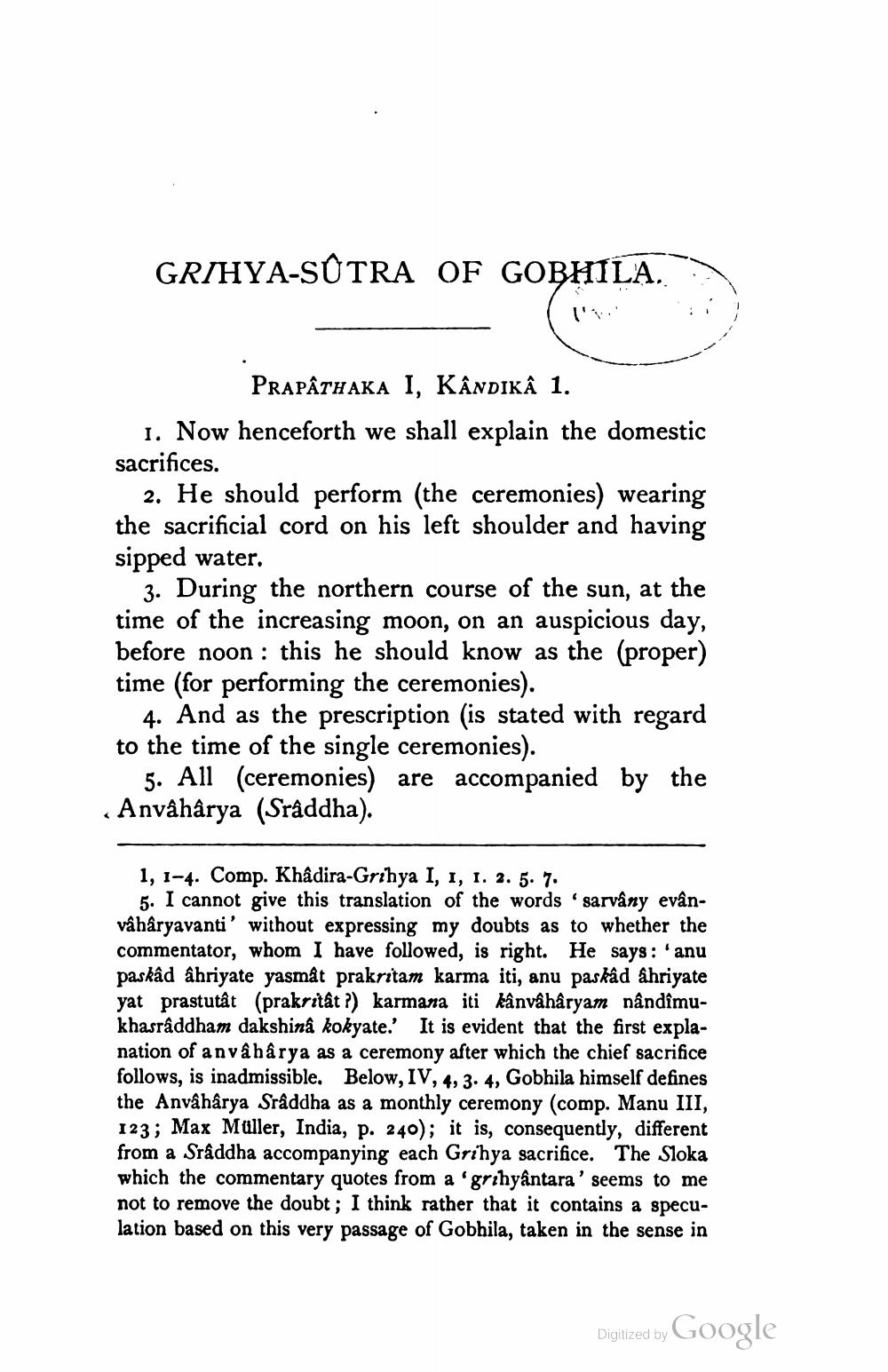________________
GR/HYA-SÚTRA OF GOBHILA.
PRAPATHAKA I, Kândik 1. 1. Now henceforth we shall explain the domestic sacrifices.
2. He should perform (the ceremonies) wearing the sacrificial cord on his left shoulder and having sipped water.
3. During the northern course of the sun, at the time of the increasing moon, on an auspicious day, before noon: this he should know as the proper) time (for performing the ceremonies).
4. And as the prescription (is stated with regard to the time of the single ceremonies).
5. All (ceremonies) are accompanied by the Anvâhârya (Sraddha).
1, 1-4. Comp. Khâdira-Grihya I, 1, 1. 2. 5. 7.
5. I cannot give this translation of the words 'sarvâny evânvâhâryavanti' without expressing my doubts as to whether the commentator, whom I have followed, is right. He says: 'anu paskâd âhriyate yasmåt prakritam karma iti, anu paskâd áhriyate yat prastutât (prakritât ?) karmana iti kânvâhâryam nândîmukhasraddham dakshina kokyate.' It is evident that the first explanation of anvâ hârya as a ceremony after which the chief sacrifice follows, is inadmissible. Below, IV, 4, 3. 4, Gobhila himself defines the Anvâhârya Sraddha as a monthly ceremony (comp. Manu III, 123: Max Müller, India, P. 240); it is, consequently, different from a Sraddha accompanying each Grihya sacrifice. The Sloka which the commentary quotes from a 'grihyântara' seems to me not to remove the doubt; I think rather that it contains a speculation based on this very passage of Gobhila, taken in the sense in
Digitized by Google




